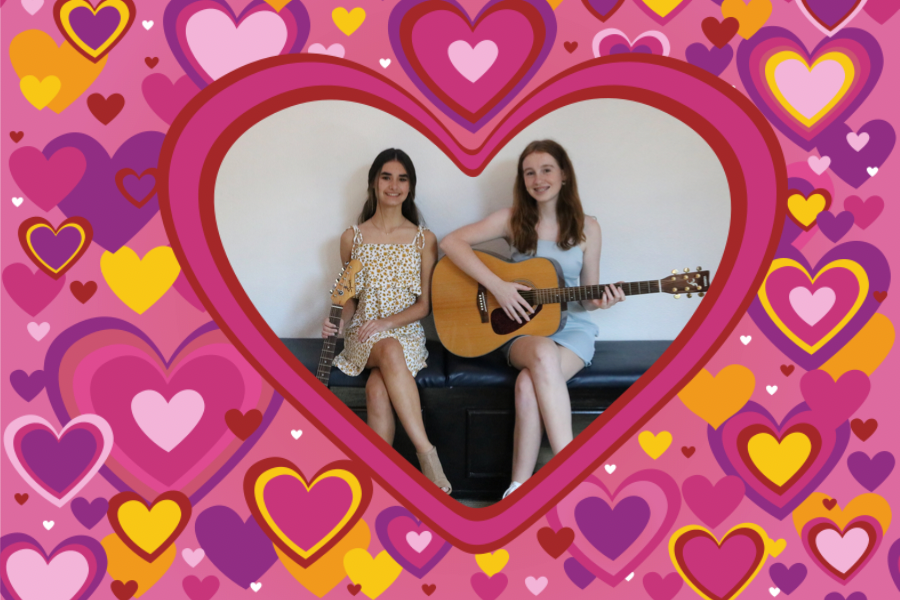
What is the Most Played Song On Valentine’s Day?
It’s Valentine’s Day this month, and as we enter this iconic holiday, we will explore how music and love has existed in people’s lives throughout the many different music genres.
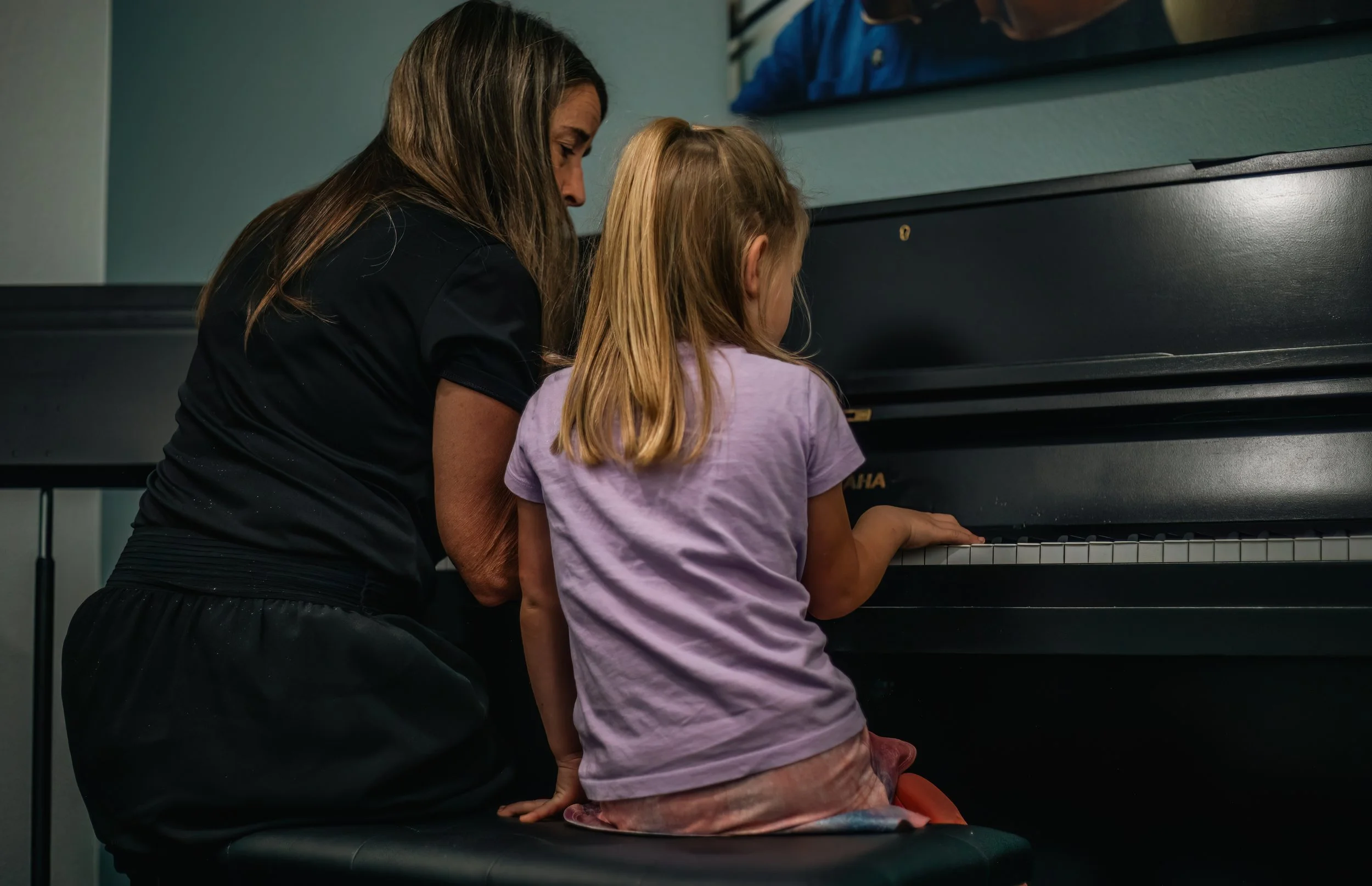
New Year, New Skills: Make Music Your Resolution for 2026!
Learning music should feel joyful, not intimidating. In this first Learn With Camille video, I’ll show you how to play Lean on Me on piano using just four simple chords. Whether you’re brand new or returning to music, let’s learn together — one song at a time.

Looking for the Perfect Gift this Holiday Season? We have a gift idea that will Sparkle for years to come!
When you choose music lessons as a gift, you’re giving an experience, a lifelong skill, and a joyful journey. Whether they’re interested in piano, guitar, voice, or another instrument, your gift will open doors to creativity and passion that can last a lifetime.

Encinitas Music Educator Honored for Teaching Excellence
🎶 Big news! Camille Hastings, founder of Leading Note Studios, has been nationally recognized with the Award of Excellence in Music Education by Music Academy Success. From Nashville to Encinitas, we’re so proud to see our passion for music and community celebrated on a national stage! 👏💙
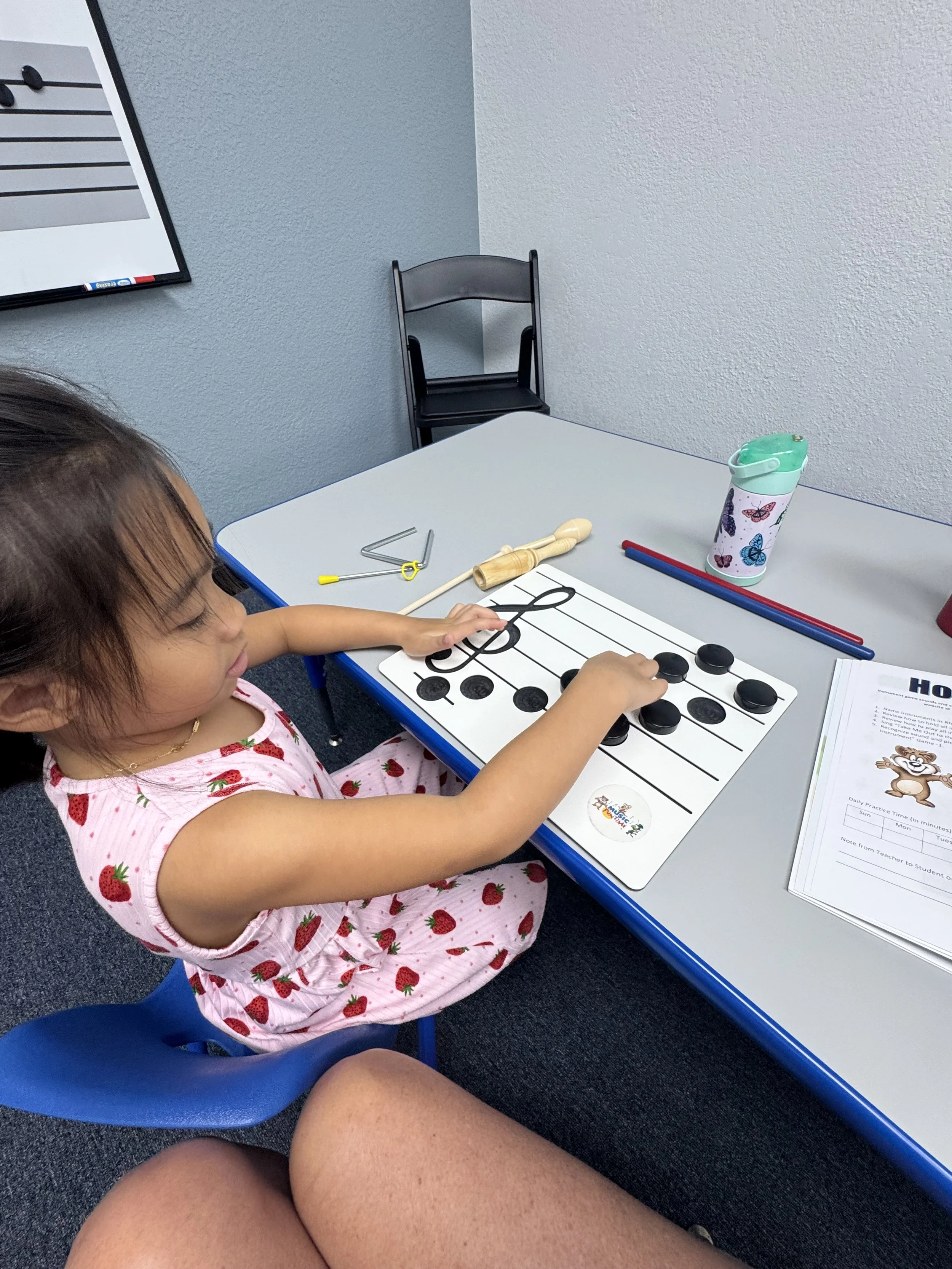
From Toddlers to Seniors: Why Music Makes the Perfect Gift
"Give the Gift of Music – Even to Yourself! Every Retirement Home Has a Piano, But No One’s Playing on a Soccer Team!" - Camille Hastings
Why wait for a special occasion to give the gift of music? It’s never too late to learn a lifelong skill, and trust us, it’s one that pays off for years to come! Every retirement home may have a piano, but how many of them have a soccer team? Music is a gift that transcends age, and it’s an experience that can bring joy, connection, and mental sharpness to people at any stage of life.
So why not give it to yourself? Or share it with a loved one. It’s time to invest in something that can keep your mind sharp, your spirits high, and your heart connected to something meaningful for the rest of your life.
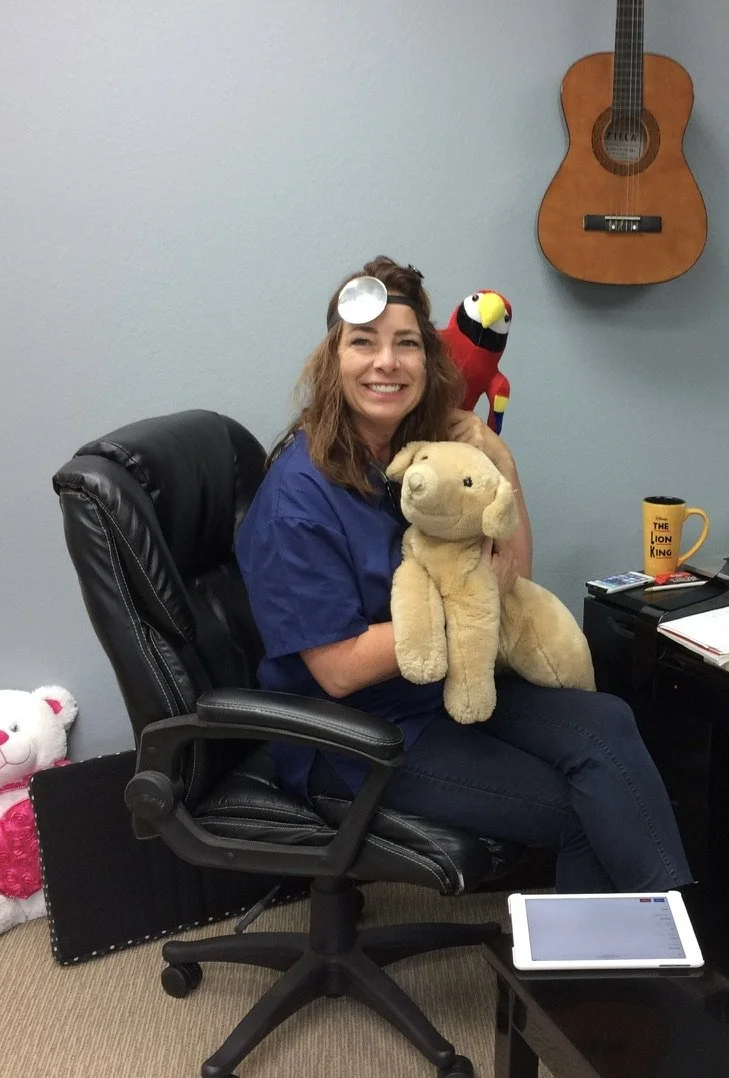
🎃 Music Lessons Aren’t Scary (Even in October!)
🎃🎶 Musical Vet Joke 🐾
Why did the veterinarian bring a trumpet to the Halloween party?
Because she wanted to play with the trom-bone-ies! 🎺💀
Ha Ha Ha!
Why did the cat sit in the music room on Halloween?
Because the vet said it needed to practice its meow-sic! 🐱🎶
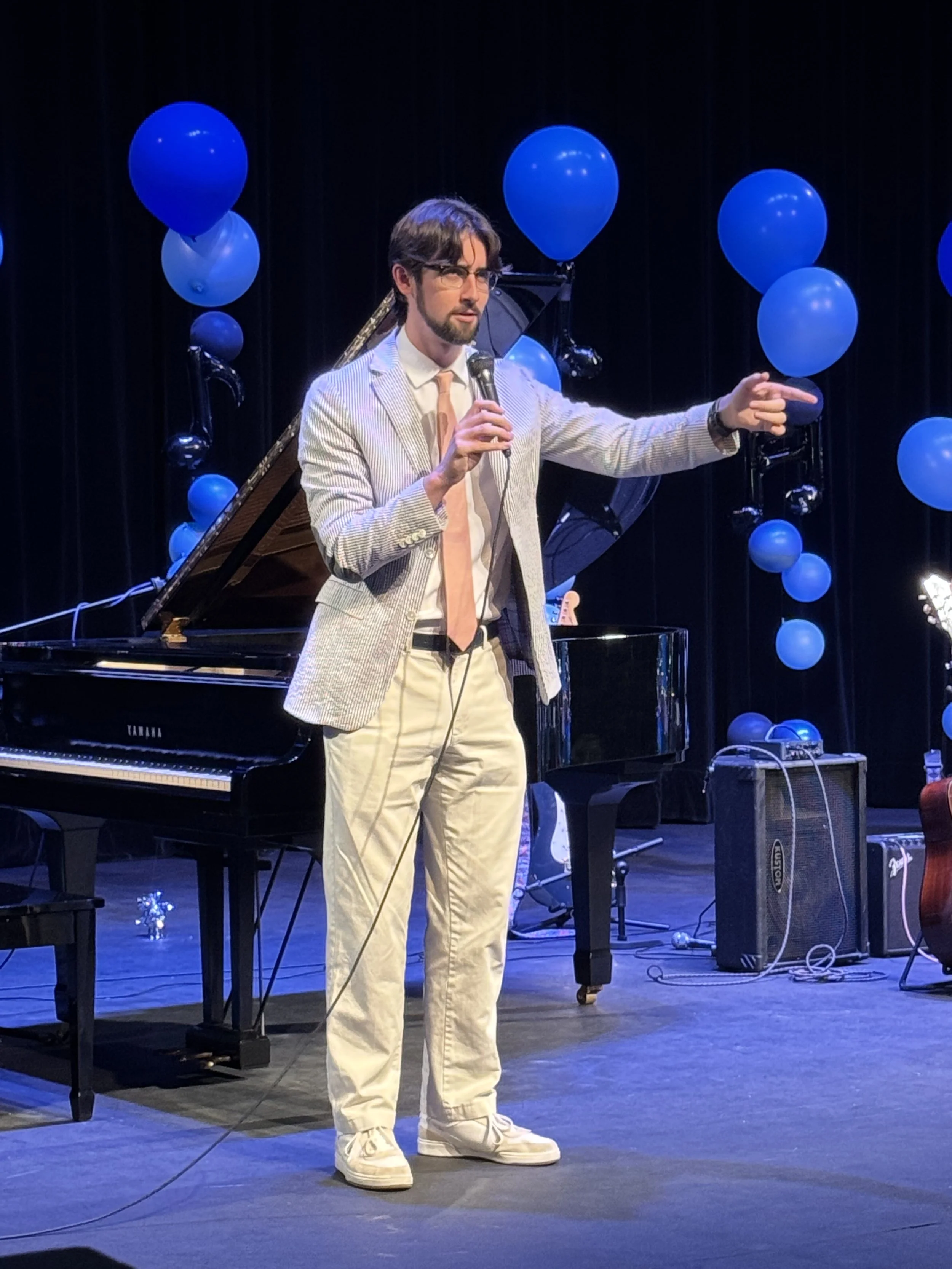
It’s Never Too Late to Start a Music Hobby
It’s never too late to start music. Whether you’re picking up an old instrument or trying something new, music can be the hobby that brings joy, stress relief, and creativity into your life. With our Flex Pass program, adults can take lessons one at a time, try different teachers, and fit music into their busy schedules, every adult who starts says the same thing: “I’m so glad I finally did this!”
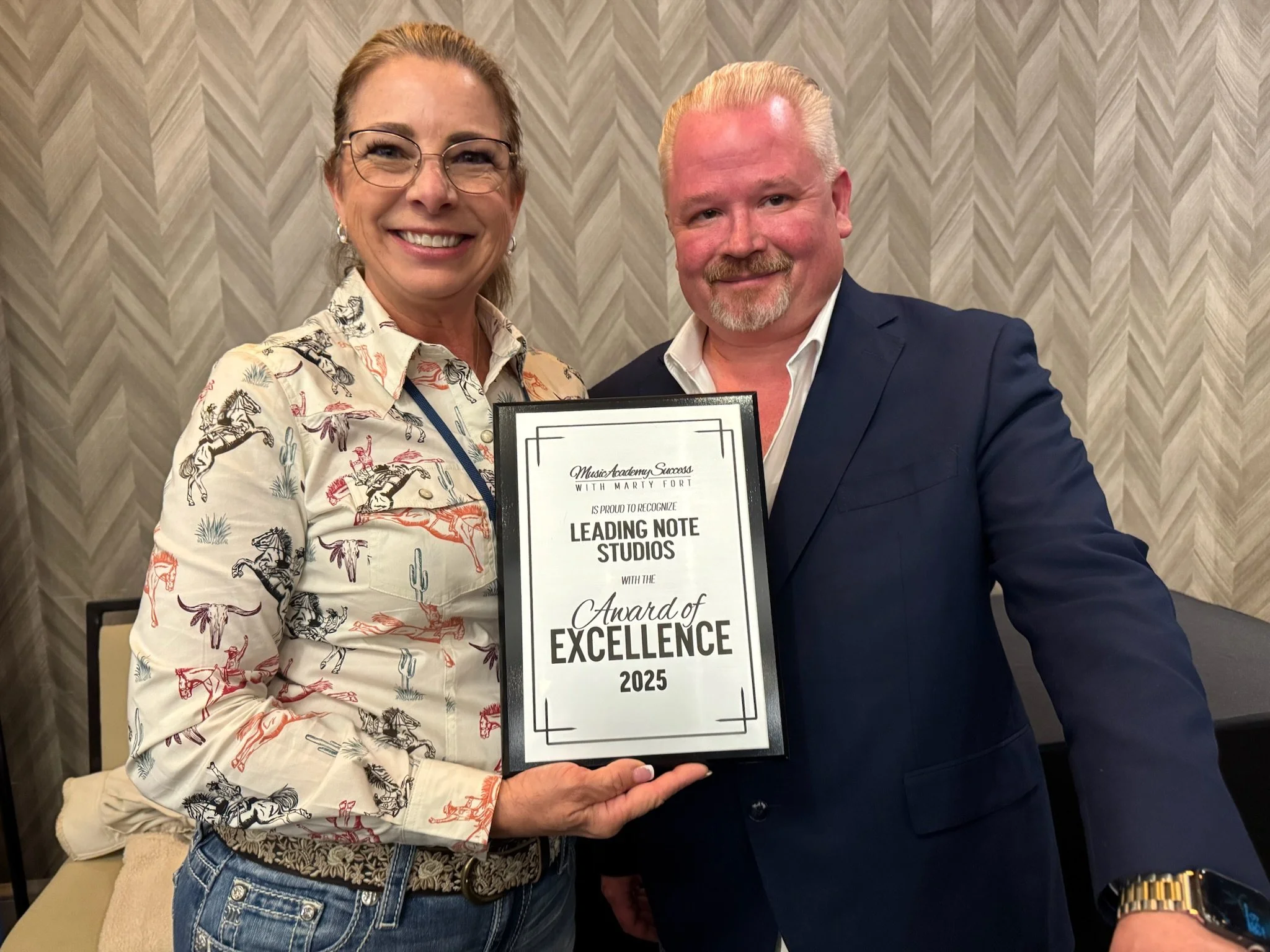
Music Educator and Business Owner Honored for Teaching Excellence
🎶 Big news! Camille Hastings, founder of Leading Note Studios, has been nationally recognized with the Award of Excellence in Music Education by Music Academy Success. From Nashville to Encinitas, we’re so proud to see our passion for music and community celebrated on a national stage! 👏💙
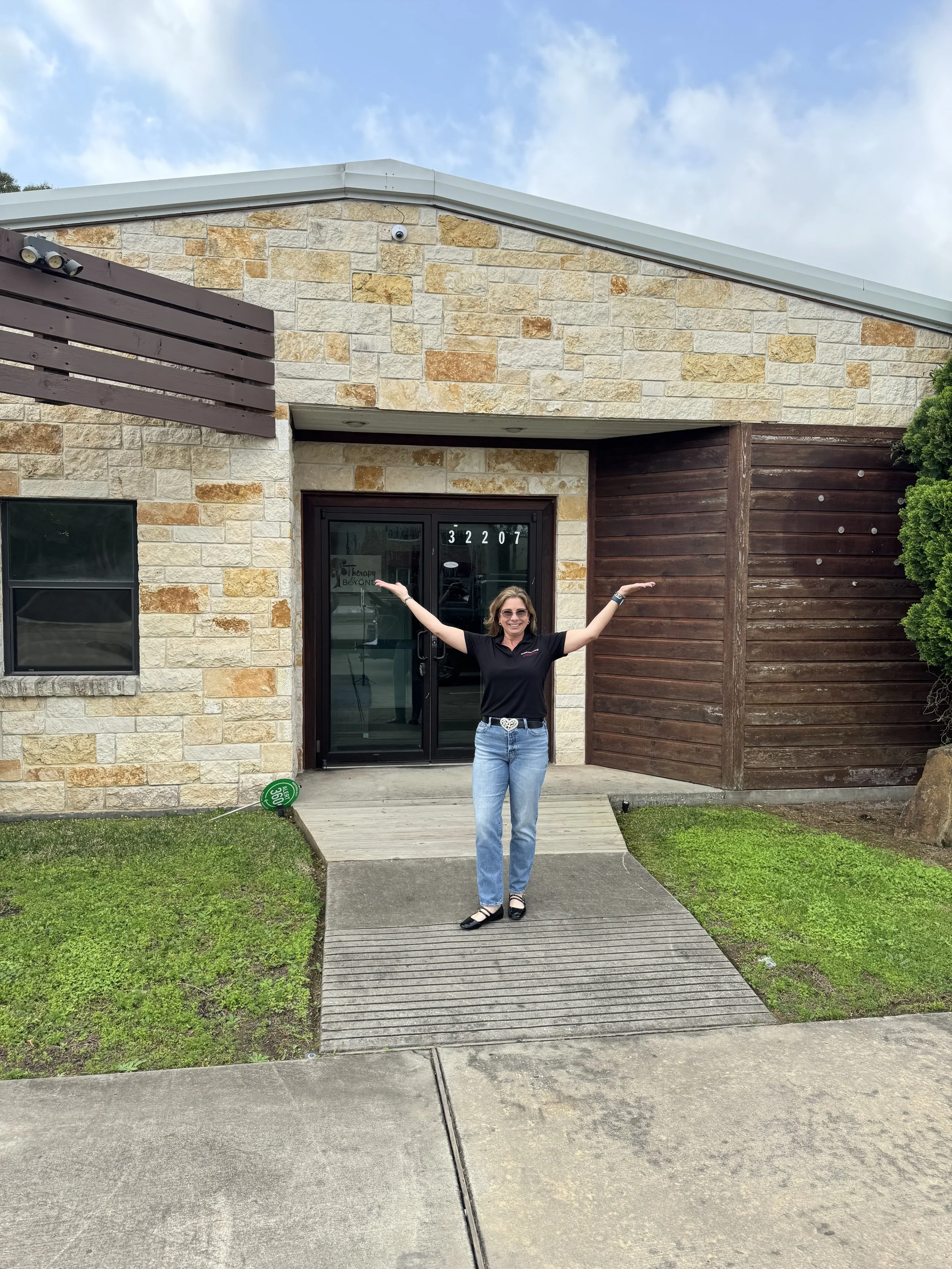
Magnolia Madness: The Real Deal Behind Location #3
Opening a New Business... or Filming a Reality Show?
What do IRS refund checks, septic tank sprinkler systems, and three rounds of negotiation have in common? Apparently, the grand opening of Leading Note Studios Magnolia! 🎶
Join me on the wild, hilarious, and slightly muddy adventure of opening our third location—where nothing went according to plan, and somehow it all still worked out. From playground plumbing surprises to fire marshal wins and unexpected blessings, this is one behind-the-scenes story you don’t want to miss.
